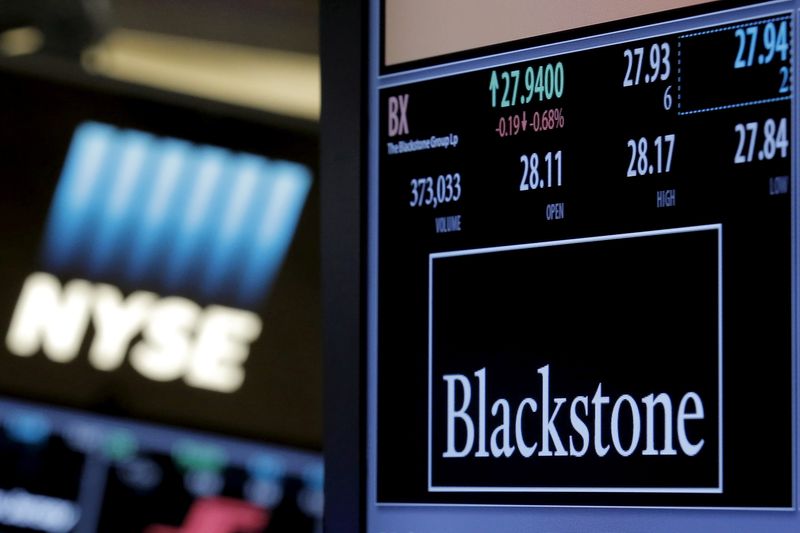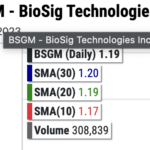By Chibuike Oguh
NEW YORK (Reuters) – Blackstone Inc said on Thursday its second-quarter distributable earnings slumped nearly 40%, owing to a sharp drop in asset sales mostly from its real estate and credit businesses.
Distributable earnings, which represent cash used to pay dividends to shareholders, fell to $1.2 billion from nearly $2 billion a year earlier. That resulted in distributable earnings of 93 cents, in line with average analyst estimate, as per Refinitiv.
Blackstone said its net profit from asset sales plunged 82% to $388.4 million from $2.2 billion in the year-ago period, as higher interest rates, sticky inflation, and economic uncertainty have continued to weigh on its merger-and-acquisition activity.
A major share of the reduced asset disposals came from Blackstone’s real estate unit, where its net profit sank 94%, while that of its credit division dropped 46%.
Still, its private-equity business saw a 20% growth in performance fees, driven by secondary share sales of Blackstone’s stake in London Stock Exchange Group and Gates Industrial Corporation.
Corporate private-equity funds appreciated by 3.5% during the quarter, compared with 8.3% growth in the benchmark S&P 500 index, Blackstone said. Its private credit funds gained 3.3% while hedge fund assets grew 1.9%. Opportunistic real estate funds were flat.
Under generally accepted accounting principles (GAAP), Blackstone’s net income came in at $601.3 million, versus a net loss of $29.4 million due to a rebound in revenue from performance fees and principal investments.
Blackstone’s total assets under management hit the $1 trillion milestone for the first time, and were in line with its prior outlook, underpinned by strong fundraising of $30.1 billion in the quarter. It also had about $195 billion of unspent capital and declared a quarterly dividend of 79 cents per share.
(This story has been corrected to fix the quarterly fund performance figures for corporate private equity, private credit, and opportunistic real estate in paragraph 6)
(Reporting by Chibuike Oguh in New York; Editing by Sherry Jacob-Phillips)








